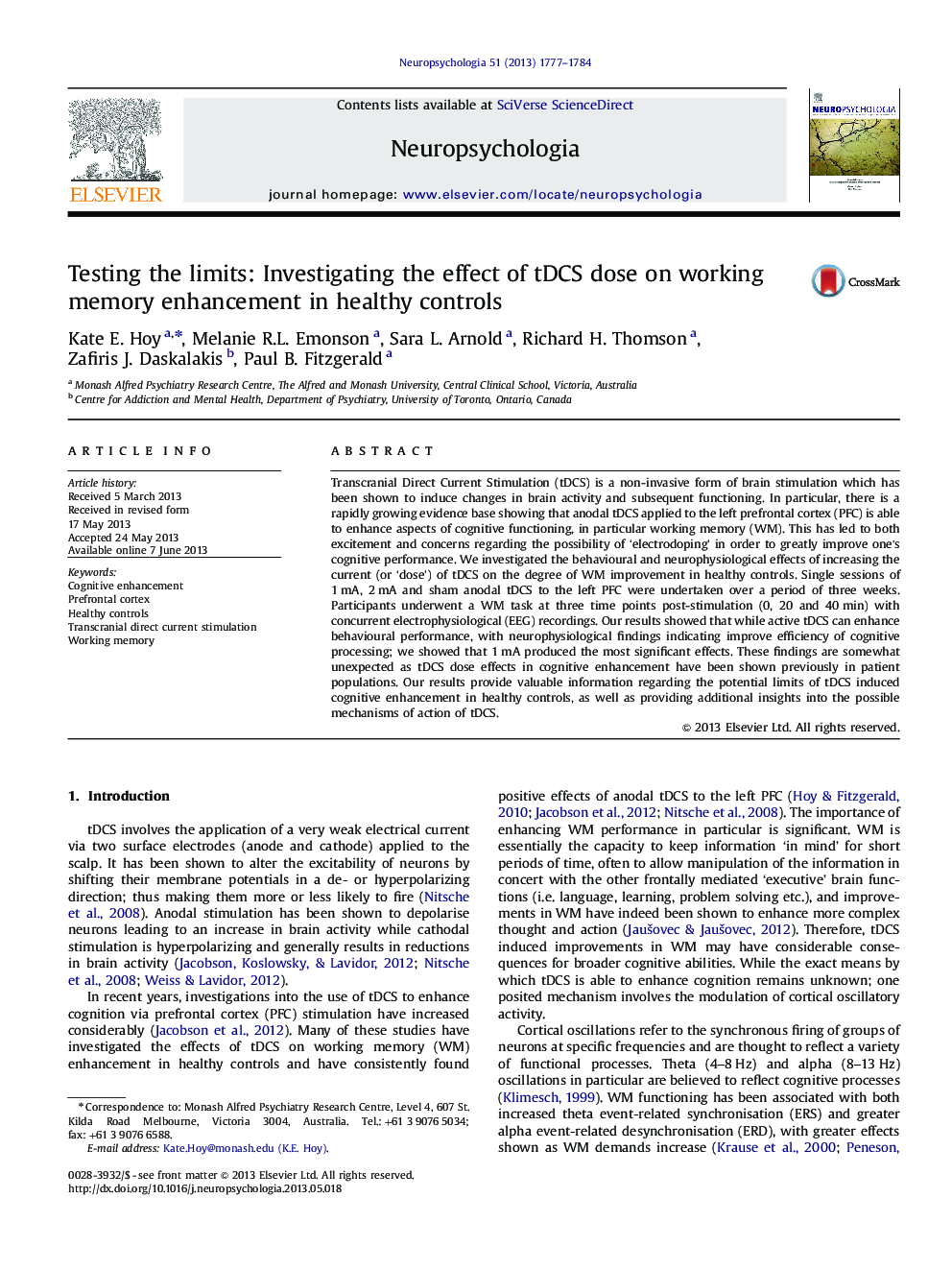| Article ID | Journal | Published Year | Pages | File Type |
|---|---|---|---|---|
| 10464768 | Neuropsychologia | 2013 | 8 Pages |
Abstract
Transcranial Direct Current Stimulation (tDCS) is a non-invasive form of brain stimulation which has been shown to induce changes in brain activity and subsequent functioning. In particular, there is a rapidly growing evidence base showing that anodal tDCS applied to the left prefrontal cortex (PFC) is able to enhance aspects of cognitive functioning, in particular working memory (WM). This has led to both excitement and concerns regarding the possibility of 'electrodoping' in order to greatly improve one's cognitive performance. We investigated the behavioural and neurophysiological effects of increasing the current (or 'dose') of tDCS on the degree of WM improvement in healthy controls. Single sessions of 1Â mA, 2Â mA and sham anodal tDCS to the left PFC were undertaken over a period of three weeks. Participants underwent a WM task at three time points post-stimulation (0, 20 and 40Â min) with concurrent electrophysiological (EEG) recordings. Our results showed that while active tDCS can enhance behavioural performance, with neurophysiological findings indicating improve efficiency of cognitive processing; we showed that 1Â mA produced the most significant effects. These findings are somewhat unexpected as tDCS dose effects in cognitive enhancement have been shown previously in patient populations. Our results provide valuable information regarding the potential limits of tDCS induced cognitive enhancement in healthy controls, as well as providing additional insights into the possible mechanisms of action of tDCS.
Keywords
Related Topics
Life Sciences
Neuroscience
Behavioral Neuroscience
Authors
Kate E. Hoy, Melanie R.L. Emonson, Sara L. Arnold, Richard H. Thomson, Zafiris J. Daskalakis, Paul B. Fitzgerald,
